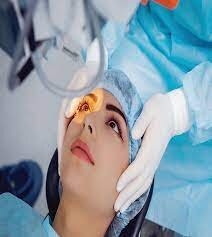How Refractive Surgery Can Improve Your Vision and Quality of Life

Refractive surgery refers to a group of surgical procedures that aim to correct common vision problems like nearsightedness, farsightedness, and astigmatism. These procedures reshape the cornea, or clear front part of the eye, to change how light enters and focuses inside the eye.
Successful refractive surgery typically results in sharper vision and less reliance on prescription eyeglasses or contact lenses. For many patients, that leads to a better overall quality of life.
Correcting Nearsightedness (Myopia)
People with myopia or nearsightedness can see objects up close clearly but distant objects appear blurry. This common vision disorder is caused by an elongated eye shape that overfocuses incoming light and causes it to meet the retina before coming into sharp focus.
Refractive surgeries like LASIK use laser technology to reshape the cornea and adjust light focus. After recovery, most nearsighted people achieve 20/20 vision or better and no longer need glasses or contacts to see far away.
Correcting Farsightedness (Hyperopia)
Farsightedness or hyperopia is the opposite of myopia. People with hyperopia can see distant objects clearly but close-up objects appear blurry because light reaches the retina before coming into proper focus.
To correct hyperopia, refractive surgery reshapes the cornea to focus light correctly inside the eye. This provides a clear near and far vision for most farsighted patients. Glasses or reading glasses may still be needed for small print.
Reducing Astigmatism
Astigmatism is an imperfection in the cornea's curvature that prevents light from focusing clearly at any distance. This results in blurred vision. Refractive surgery can reshape the cornea to smooth out its contour and correct astigmatism.
Many patients have combined vision disorders and get treatment for multiple conditions during one refractive procedure.
Better Vision Means a Better Quality of Life
Refractive surgeries like LASIK provide permanent vision correction that can enhance daily life in many ways:
- More freedom and confidence without having to wear eyeglasses or squint to see clearly
- Ability to participate more fully in sports, hobbies and other activities
- Less worry about losing or breaking glasses
- Clearer vision for driving, especially at night or in poor weather
- Better job opportunities and performance without visually impaired restrictions
- Improved safety and mobility without dependence on glasses or contacts
Of course, refractive surgery does not always guarantee perfect vision. But modern procedures have very high success rates. For many patients, the rewards of better vision outweigh the cost and recovery time of surgery.
If you struggle with nearsightedness, farsightedness, or astigmatism, talk to your eye doctor about whether refractive surgery may be right for you. It could open up new possibilities for your vision, lifestyle, and quality of life.
Contact us at https://bhartieyefoundation.in/ to schedule an appointment for cataract treatment. We are delighted to offer seamless eye care services because we really think that "every eye deserves the best."
You may like this:
- Industry
- Art
- Causes
- Crafts
- Dance
- Drinks
- Film
- Fitness
- Food
- Games
- Gardening
- Health
- Home
- Literature
- Music
- Networking
- Other
- Party
- Religion
- Shopping
- Sports
- Theater
- Wellness
- News


